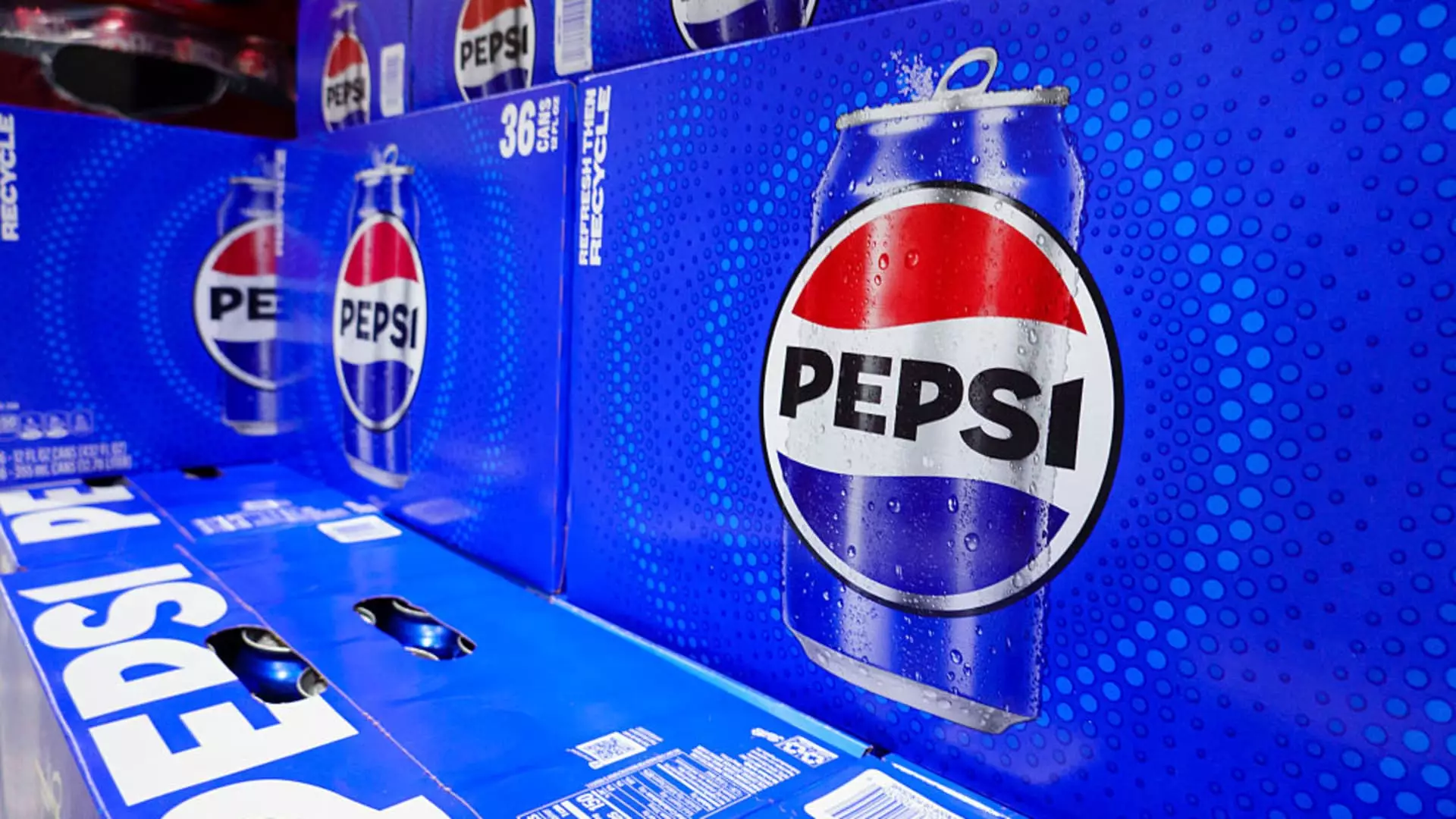PepsiCo’s recent quarterly report suggests a company teetering on the brink of strategic revaluation, yet it’s hard to ignore the underlying fragility. The firm’s headline figures—beating analyst expectations on earnings per share and revenue—mask a deeper malaise: declining volumes in North American markets and a sluggish demand for core products. While executives celebrate slight improvements and projected rebounds, these are merely rhetorical band-aids over a more significant, systemic stagnation. Their insistence that demand will recover as strategic shifts take hold seems more wishful thinking than a robust plan for sustainable growth.
Despite the positive veneer, Pepsi’s core metrics tell a different story. The year-over-year dip in net income, coupled with persistent volume declines, underscores that American consumers are either shifting away from traditional soda and snack staples or becoming more selective in their spending. The 1.5% drop in food volume and 2% decrease in drink volume in North America should be seen as alarming indicators—market saturation and changing consumer preferences are eroding the company’s US dominance. It’s a classic case of a business clinging to past glory, betting on strategic repositioning rather than bold innovation or market expansion.
Reactive Strategies May Not Be Enough
Pepsi’s executive team has outlined a commitment to healthier options, multicultural offerings, and product relaunches—yet these tactics appear reactive rather than revolutionary. Leaning into recent health trends, such as boosting plant-based and protein-rich products like those from Siete Foods and Sabra, might slow attrition but won’t necessarily reverse it. These niche responses seem more like attempts to patch a sinking ship than to steer it toward new horizons.
The decision to focus on core ingredients—potatoes and corn—by relaunching iconic brands like Lay’s and Tostitos, reinforces a reliance on nostalgia and familiarity. While these strategies serve to protect existing customer bases, they also risk becoming outdated if competitors innovate further or if consumers’ health consciousness deepens. Importantly, the efforts to improve product in-store availability and placement, while practical, do little to challenge the underlying shift away from traditional snack foods and sugary drinks.
Furthermore, the cost-cutting measures—including shuttering manufacturing plants and optimizing logistics—are short-term fixes that may enhance margins but do little to invigorate growth. Cutting costs at the expense of innovation and consumer engagement can be a trap, especially when many young consumers now prioritize experience and authenticity over traditional branding.
Challenges of a Shifting Consumer Landscape
Pepsi’s cautious outlook for the rest of the year reflects a broader recognition of economic volatility and a wary consumer base. Yet, the company’s approach remains conservative—minimally adjusting earnings expectations and emphasizing “low single-digit” organic growth. This timid posture might be prudent in uncertain times, but it also signals a reluctance to make the bold moves necessary in a rapidly changing environment.
In many ways, Pepsi’s predicament is emblematic of traditional consumer brands caught between achieving modest short-term gains and adapting to long-term structural shifts. Their focus on cost efficiencies and strategic realignments suggests a recognition of the need to evolve, but without a clear paradigm shift, they risk falling behind rivals who innovate faster and resonate more deeply with modern preferences.
From a political-economic perspective, Pepsi’s strategy reflects a typical Center-Right approach—balancing market-driven efficiencies with cautious innovation. Yet, if they continue to rely on nostalgic branding and incremental adjustments, they may find that the market leaves them behind in the pursuit of authenticity, health-consciousness, and diversity. The challenge lies not only in reinvigorating brands but in reimagining the entire business model to prioritize agility and consumer relevance over mere cost-cutting.
PepsiCo’s recent earnings paint a picture of a company aware of its vulnerabilities but hesitant to embrace the transformative change required. Without a bolder, more visionary approach—one that genuinely connects with evolving consumer values—its future remains uncertain, and its claim of growth may prove to be more illusion than reality.

